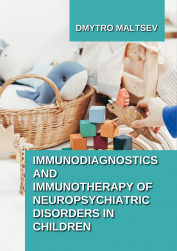Results of the search for laboratory signs of autoimmune reactions to brain and extracerebral autoantigens in children with autism spectrum disorders associated with genetic deficiency of the folate cycle
Keywords:
Immunodiagnostics, immunotherapy, neuropsychiatric disorders, children, diagnostics, therapyAbstract
Genetic deficiency of the folate cycle (GDFC) is an important associated factor in autism spectrum disorders (ASD) in children, as evidenced by the accumulated evidence base from meta-analyses of randomized controlled trials. Biochemical abnormalities caused by GDFC have been shown to lead to immune system damage with induction of immunodeficiency and associated immune dysregulation. Data from a systematic review by H. K. Hughes et al. clearly outline a range of representative pathological changes in the immune status in children with ASD, in particular, a pronounced cytokine imbalance with a predominance of pro-inflammatory mediators, aberrant subpopulation composition of blood lymphocytes, increased serum and cerebrospinal fluid concentrations of laboratory markers of neuroinflammation, multidirectional abnormal deviations in the functioning of the adaptive and innate immune systems, impaired ratios of immunoglobulins of different classes and subclasses in blood serum, and autoimmune reactions to a number of cerebral and extracerebral autoantigens.
At least 3 independent immune-mediated mechanisms of CNS damage in GDFC are currently known, caused by persistent immune dysfunction, which significantly contribute to the formation of encephalopathy with the clinical picture of ASD. These include the development of neurotropic opportunistic and conditionally pathogenic infections, autoimmune reactions to neurons and myelin of the cerebral hemispheres, and systemic and associated intracerebral aseptic inflammation caused by immune dysregulation. Inhibition or elimination of immune-dependent mechanisms of CNS damage appears to be a promising strategy for the treatment of ASD in children with GDFC.
A special role in the pathogenesis of encephalopathy in children with ASD is assigned to autoimmune mechanisms. Such ideas are based on a number of scientific evidence.

IMMUNODIAGNOSTICS AND IMMUNOTHERAPY OF NEUROPSYCHIATRIC DISORDERS IN CHILDREN
Downloads
Pages
Published
Categories
License

This work is licensed under a Creative Commons Attribution-NonCommercial-NoDerivatives 4.0 International License.

